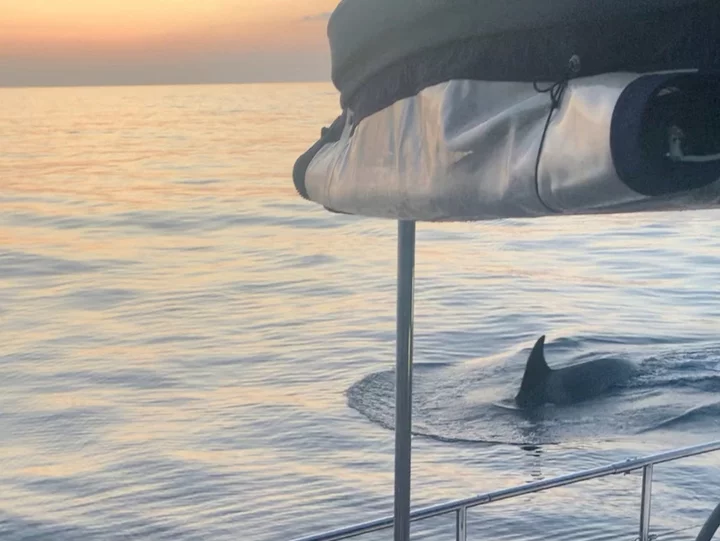
Gladis the killer whale and her gang of orcas, out for revenge on the yachts of Gibraltar
A British sailor’s boat was the latest victim in a spate of orca attacks on vessels near Gibraltar, as an expert suggested a “traumatised” killer whale may be inadvertently teaching others to target them. There have been 20 incidents this month alone between the highly social apex predators and small vessels sailing in the Strait of Gibraltar, according to the Atlantic Orca Working Group (GTOA), with dozens of orca attacks on ships recorded on Spanish and Portuguese coasts this year. In the early hours of Thursday, a group of orcas broke the rudder and pierced the hull of a boat after ramming into the Mustique on its way to Gibraltar, prompting its crew of four to contact Spanish authorities for help, a spokesperson for the maritime rescue service said. The service deployed a rapid-response vessel and a helicopter carrying a bilge pump to assist the 20-metre (66ft) vessel, which was sailing under a British flag, a spokesperson for the maritime rescue service said. The Mustique was towed to the port of Barbate, in the province of Cadiz, for repairs. Posting footage of the ordeal on Instagram, British sailor April Boyes, aged 31, said: “What started off as a seemingly unique encounter ended with orcas breaking off our rudder from the boat, then proceeding to tear bits off the boat for an hour. “A huge hole in the hull meant we had water ingress to other parts of the boat and the engine room, and I can honestly say it was a scary experience. We are all safe. I’m feeling grateful for the coastguard.” Earlier in May, the sailing yacht Alboran Champagne suffered a similar impact from three orcas half a nautical mile off Barbate. The boat could not be towed as it was completely flooded and was left adrift to sink. The boat’s captain, Werner Schaufelberger, told the German magazine Yacht that he saw the two smaller whales imitating the ramming tactic of the larger orca, believed to be a matriarch named “White Gladis”. “The little ones shook the rudder at the back while the big one repeatedly backed up and rammed the ship with full force from the side,” he said. “The two little orcas copied the bigger one’s technique and, with a slight run-up, came darting towards the boat. Mainly on the rudder, but also the keel.” Just two days previously, on 2 May, six orcas rammed the hull of a Bavaria 46 cruiser yacht in an encounter lasting an hour near Tangier, reportedly causing thousands of pounds of damage. Business consultant Janet Morris and photographer Stephen Bidwell, a couple from Cambridgeshire, both aged 58, were on board for a sailing course when they heard a shout of “orcas”. “We were sitting ducks,” Ms Morris told TheDaily Telegraph, while Mr Bidwell said: “I kept reminding myself we had a 22-tonne boat made of steel, but seeing three of them coming at once, quickly and at pace with their fins out of the water, was daunting.” “A clearly larger matriarch was definitely around and was almost supervising,” he added, speculating that it was White Gladis. The first orca encounter in the area occurred in May 2020, since when more than 500 have been recorded, according to the GTOA research group. Most interactions have been harmless, with orcas only touching an estimated one in every 100 boats passing through the area, according to biologist Alfredo Lopez Fernandez, of the GTOA and University of Aveiro, who said that three vessels have sunk so far. Experts believe White Gladis may have suffered a “critical moment of agony”, such as colliding with a boat or becoming entrapped during illegal fishing, which altered her behaviour in a “defensive” fashion. “That traumatised orca is the one that started this behaviour of physical contact with boats,” Dr Lopez Fernandez told Live Science. “We do not interpret that the orcas are teaching the young, although the behaviour has spread to the young vertically, simply by imitation, and later horizontally among them, because they consider it something important in their lives,” he said. The behaviour has baffled scientists, with some initially suggesting it could be related to the harmful scarcity of food facing the mammals, or the disruptive resumption of business-as-usual nautical activities in the wake of the pandemic, while others have suggested it could be playful behaviour. Although known as killer whales, endangered orcas are part of the dolphin family. They can measure up to eight metres and weigh up to six tonnes as adults. Additional reporting by Reuters Read More Watch killer whales wreck boat in latest violent attack off Spain Rare white orca spotted off Japanese coast for first time in two years Dolphins and orcas found to use ‘Kim Kardashian-like voice register’ to catch prey ‘Like a sledgehammer’: Killer whales perplex scientists by ramming sailing boats on Spanish coast
2023-05-28 22:16
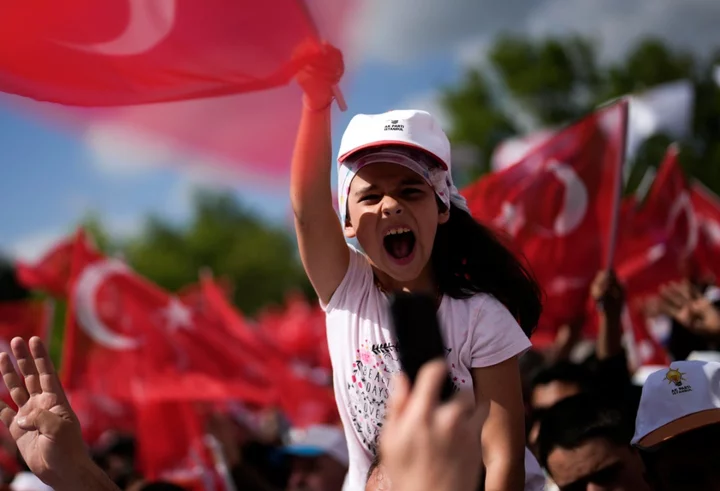
Turkey votes in an election of consequence for the nation and the world
Turkey’s President Recep Tayyip Erdogan seeks to strengthen his legacy today as his nation’s most consequential leader since its founder, Mustafa Kemal Ataturk, in an election run-off with major implications. Mr Erdogan has been campaigning frenetically in the weeks since he exceeded polling forecasts but fell shy of an outright majority in the 14 May first round of the elections, forcing Turkey into a run-off for the first time in its history. He faces off against Kemal Kilcdaroglu, leader of the centre-left People’s Republican Party (CHP) and architect of a six party opposition coalition which has posed the greatest political challenge to Mr Erdogan in his 20 years as either prime minister or president of Turkey. The election, on the centennial of Turkey’s founding as a modern republic, carries enormous weight for the country. It is seen as something of a defining moment in its political and cultural identity. Mr Erdogan represents an Islamically tinged nationalism, with appeals to Turkey’s Ottoman imperial past. Mr Kilicdaroglu and his party have sought to define themselves as European, steeped in an ideology and lineage rooted in Ataturk’s version of secularism. The election may also impact the dynamics of Nato, of which Turkey is a longtime member, and affect the outcome of the war between Russia and Ukraine as well as ongoing conflicts in the Middle East and North Africa. Lines at polling stations were reportedly shorter and more relaxed than the first round of the elections, in large part because voters face a simpler single ballot with two candidates rather than the complicated parliamentary choices of two weeks ago. Mr Erdogan appeared to be doing well in the run-up to the vote despite lingering worries over the economy he has overseen. “I think the country is doing well,” said Songul Safak, a 36-year-old jeweller who voted for Mr Erdogan. “The economy is doing badly because of the actions of other countries. In one video clip that went viral, a voter brought her pet lamb to the polls, the fluffy white creature in a striped sweater trundling behind her as she obtained and cast her ballot. Others brought their dogs and pet parrots. Turnout will be key, with more than 64 million registered voters, including nearly 2 million aboard who have already voted at record rates. Voters are heading to nearly 192,000 ballot boxes set up at school classrooms and community centres. Polls will close at 1700 local time (1400 GMT), with results trickling out an hour later. “We think that this election’s results will emerge earlier than the last time,” election authority chief Ahmet Yener told local media. There have been multiple reports of irregularities, including in an incident in the heavily contested southeastern province of Sanliurfa where opposition lawyers seeking to look into allegations of ballot stuffing were barred from a polling station. Mr Erdogan and his allies control much of the broadcast media and have been flooding the airwaves with his speeches in recent days while giving Mr Kilicdaroglu scant airtime. Turkey’s mobile phone authority recently barred the use of the country’s text-messaging services for political purposes, disallowing Mr Kilicdaroglu from sending texts to supporters while allowing Mr Erdogan to use the medium in his capacity as a government official. The country’s election laws were adjusted last year in ways critics said favoured Mr Erdogan. The Organisation for Security and Cooperation in Europe, which monitored the vote, stated in a report that Turkey’s election law “has substantial shortcomings and does not fully provide a sound legal basis for the conduct of democratic elections.” Crucial issues on voters’ minds include the status of migrants and refugees, national security matters and Turkey’s place in the world. But the country’s spiralling economy remains the top issue on everyone’s tongue and the one most impacting daily lives. The country’s inflation rate is among the highest in the world, and wages have failed to keep up with housing and food costs. “If it goes on like this Turkey will be Argentina in a few months,” Nevsin Mengu, an independent political analyst and broadcaster, said in an interview, referring to the Latin American country which has been for decades an international poster child for economic mismanagement. Mr Erdogan has dug deep into the country’s reserves and procured massive credits from Arabian Peninsula and Asian nations to prop up the Turkish lira. “Some countries from the Gulf and such stocked money in our system,” the president conceded in an interview with CNNTurk on Friday. “This relieved our central bank and market, even if for a short while." Despite his handling of the economy, Mr Erdogan’s path to victory today appears far easier and even assured compared to that of his challenger, Mr Kilicdaroglu. He drew just short of 45 per cent while Mr Erdogan fell just a few hundred thousand votes short of securing a first-round victory. Opposition figures tried to remain upbeat. “I see a very high probability of Kilicdaroglu winning the election,” opposition party leader Ali Babacan told reporters after voting. But the opposition’s poor first-round performance has demoralised its supporters. “I think the elections are not fair at all, and I think Erdogan will ultimately win,” said Zeynel Circir, a 53-year-old electrical engineer voting in Istanbul. The first-round performance prompted Mr Kilicdaroglu to shift the tone and emphasis of his campaign from a message of hope and inclusiveness to focus almost exclusively on the several million Syrian and other refugees and migrants in the country. A victory by Mr Erdogan’s will spur soul-searching and perhaps major changes within the opposition. “The ballot box result is full of messages that need to be examined and lessons that need to be learned,” Istanbul mayor Ekrem Imamoglu, a leading opposition figure, said after casting his ballot. Yusuf Sayman contributed to this report. Read More AP News Digest 8:40 a.m. Watch live: Inside Turkey’s polling stations for second round of election votes Voters in Turkey return to polls to decide on opposing presidential visions Iraq announces plans for $17 billion transportation project linking Asia to Europe Why Turkey’s presidential run-off matters for the world From ashes and debris, iconic Beirut museum reopens 3 years after massive damage from port blast
2023-05-28 21:53
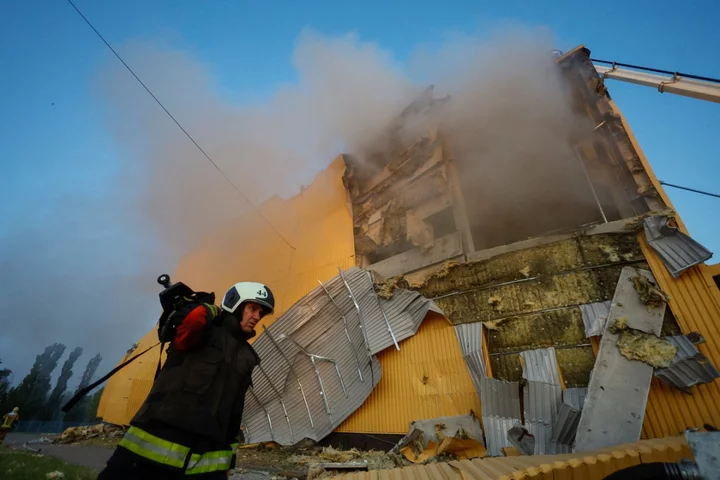
Ukraine-Russia war – latest: Ambassador warns Putin not acting ‘seriously’ yet in Ukraine
The Russian ambassador to the UK Andrei Kelin has claimed that Russia has not yet started acting “seriously” in Ukraine. In an interview on the BBC’s Kuenssberg show, Kelin said Russia is “yet to act very seriously” in Ukraine, and warned Russia has “enormous resources” to fight. Ambassador Kelin also warned of a “new dimension” in the Russia-Ukraine war. He said: “It is a big idealistic mistake to think that Ukraine will prevail. Russia is 16 times bigger than Ukraine. We have enormous resources and we haven’t just started yet to act very seriously. “We are just defending the lands which are under control and assisting Russian people over there. We are rebuilding the Donbas. “It depends on the escalation of war that is taking place. Sooner or later this escalation might have a new dimension that we do not need and we do not want. We can make peace tomorrow, if Ukrainian side will be prepared to negotiate but there is no preconditions for that.” Ambassador Kelin’s claims of “enormous resources” come after reports that Russian forces on the ground are poorly equipped and without proper training. Read More Russia has started deploying tactical nuclear warheads to Belarus, says Lukashenko As the Ukraine war spills into Russia, a dangerous new front is about to explode The Russians out for revenge on Putin Roger Waters ‘dresses as SS officer’ and projects Anne Frank’s name onto stage during gigs in Germany
2023-05-28 17:47
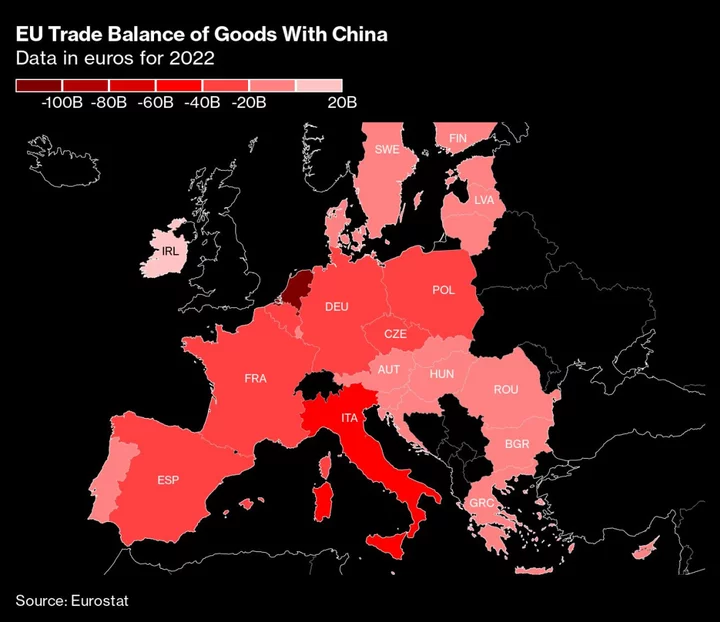
Italy Still Mulling Whether to Pull Out of China Pact: Meloni
Prime Minister Giorgia Meloni has yet to make a final decision on Italy’s controversial role in China’s Belt
2023-05-28 17:26
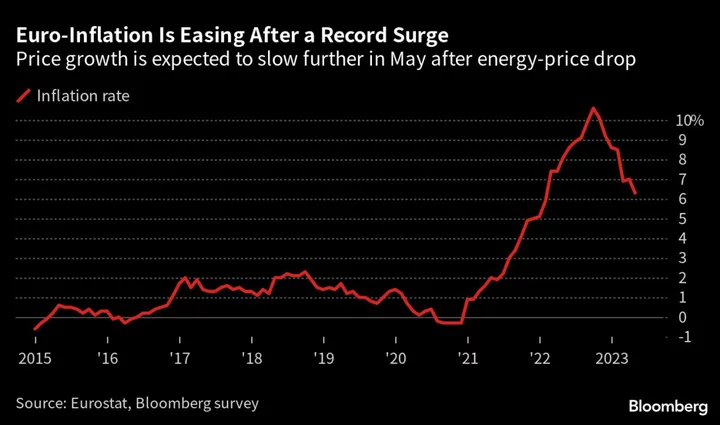
Gas Price Plunge Brings Relief to Europe After Energy Panic
European gas prices have plunged to the lowest since mid-2021, when Russia was just beginning to squeeze supplies
2023-05-28 16:18

Ukrainian rapper took fury over war to Eurovision after brother killed
The tragic reality of Russia’s bloody war on Ukraine took centre stage in a rather unusual setting recently – the Eurovision song contest. The embattled nation was supposed to host the event but due to the ongoing and deadly conflict, it was relocated to Liverpool. Ukrainian performers not only attended the ever-popular show but made sure to use the opportunity to spread their message to the huge TV audience. Among them was Kyiv rapper Otoy, who lost his own brother on the frontline. The 24-year-old, whose real name is Vyacheslav Drofa, performed at Eurovision alongside other Ukrainian musicians, bringing awareness of the atrocities of the invasion to millions. He described the “adrenaline and emotion” coursing through his body as he took to the stage earlier this month, telling The Independent: “I have never felt such a level of solidarity and support for the Ukrainian people as I did in Liverpool. “That level of understanding and emotion at Eurovision – it was crazy. Everybody was with you and your country. It felt like, ‘We support you because you are going through hell’.” Otoy is no stranger to that hell, having received tragic news in March that a body discovered in Ukraine was his brother, who had gone missing the previous April while defending besieged Mariupol. “I don’t even know what I felt,” said Otoy. “When you’re hoping for a year that he’s alive and can’t find anything, then realise his body is in Kyiv and you should identify it. “In fact, this isn’t even a body – it’s a head, a bit of a leg, part of a hand, little bits of bones. We could only identify him through his teeth. It feels really bad, the worst emotions I had in my life actually.” The rapper’s music reflects his fury and he accuses Russia of trying to “destroy” Ukraine and its culture. “I feel a lot of anger inside of me because of the things the Russians are doing,” he said. “They already crossed all the red lines, there’s no way back, we should fight till the end. “If we stop now then give it 10 years and they’ll come back with a bigger army and then they’ll invade Poland, which is a member of Nato. We’re fighting a worldwide evil. “The reason we’re doing it is we are really tired of that Russian b******t – trying to destroy Ukraine, our culture, our musicians.” Not only has the 24-year-old tackled the war through his music, he volunteered on the frontline last summer by salvaging the bodies of dead soldiers and bringing them back to their families. He is also fundraising to provide military supplies to Ukrainian soldiers for the country’s planned counteroffensive. His day job is in IT, working as a UX director at a company that created RSFY, a mobile tracker of Russian army losses. The company also developed the app TacticMedAid, which provides medical instructions for people if they input their symptoms after getting injured. Otoy juggles all of these roles during Moscow’s frequent attacks on the Ukrainian capital. “It feels like a surreal dream I live in,” he said. “Every time when there’s some air or rocket attacks, or shelling, it feels like this type of nightmare. I think, give me a couple of minutes, then everything will be OK – but I never wake up because that has continued for more than a year.” He is hopeful the war will come to an end his year but says the road to recovery after that will not be easy. “It will be a hard time – receiving bodies back, lots of funerals, lots of rebuilding cities, people returning to their houses and realising there’s no home because it will have been destroyed,” he said. “After the war, I don’t know what people will do with their emotions, I’m really scared of this.” Otoy said he will continue to make music and apps when the conflict is over, and had nothing but praise for his countrymen and women as they continue to fight against Putin’s forces. “The only thing that helps me feel alive and some kind of emotions is the process of making music and to know that millions of Ukrainians will use the IT applications I work on,” he said. “Those are two things I’ll be doing until the end of my days. “I’m feeling proud about Ukrainians. People are staying in their country, for their homeland, until the end, until their last breath.” Read More Ukraine-Russia war – live: Don’t turn a blind eye to Putin’s invasion, Zelensky warns Arab leaders Britain says Russia will ‘pay the price’ for Ukraine invasion as fresh wave of sanctions unveiled Ukraine's president begins visit to Saudi Arabia, aims to enhance ties with Arab world The Body in the Woods | An Independent TV Original Documentary The harrowing discovery at centre of The Independent’s new documentary
2023-05-28 15:21

Erdogan Seeks to Seal Victory in Run-Off for Turkish Presidency
Turkish President Recep Tayyip Erdogan is aiming to drive home an election victory to extend his rule well
2023-05-28 14:18
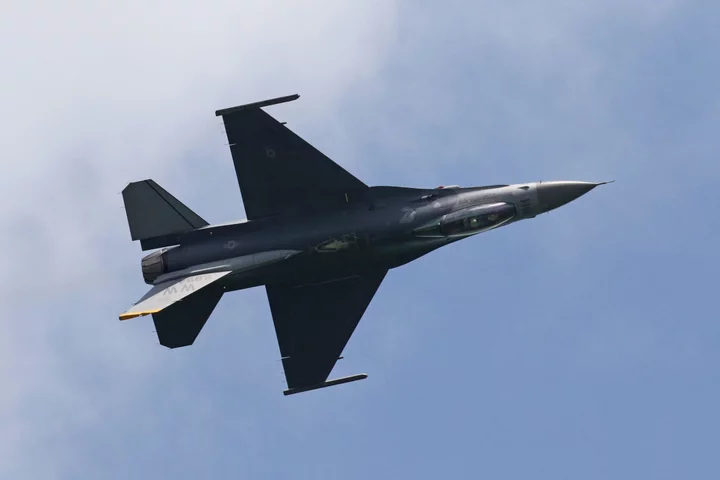
Pilots Say F-16s Can Help Ukraine But Missiles Could Down Them
The F-16 jets that the Ukrainian military is touting as a potential gamechanger in its conflict with Russia
2023-05-28 13:28
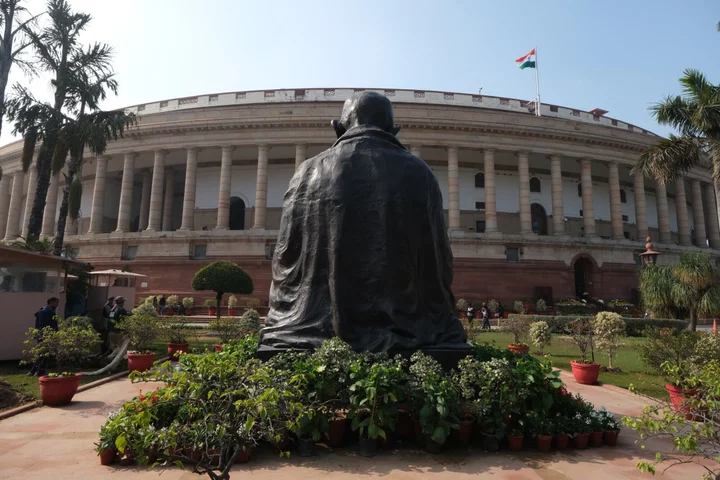
Modi to Unveil New Parliament, Reshaping India’s Power Center
India’s corridors of power are getting a makeover — part of Prime Minister Narendra Modi’s efforts to cement
2023-05-28 08:47
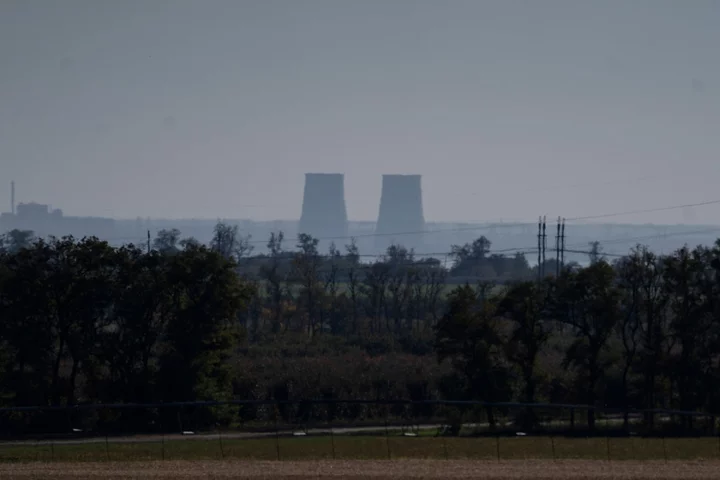
Putin ‘planning provocation’ at nuclear plant to disrupt Ukraine counteroffensive, Kyiv says
Russia is plotting a “large-scale provocation” at a nuclear power station it occupies in the south-east of Ukraine to disrupt an imminent counteroffensive, Kyiv’s military intelligence has claimed. A statement from the intelligence directorate of Ukraine’s defence ministry claimed Russian forces will strike the Zaporizhzhia nuclear power plant, the biggest in Europe. It will then report a radioactive leak in order to trigger an international probe that would pause the hostilities and give them the respite they need to regroup. In order to make that happen, Russia “disrupted the rotation of personnel of the permanent monitoring mission” of the UN’s International Atomic Energy Agency (IAEA) that was scheduled for Saturday, the statement said. It did not offer evidence to back up any of the claims. The IAEA said it did not have any immediate comment on the allegations and Russian officials did not immediately comment on the Ukrainian claims. The White House said it is watching the situation closely and has seen no indication radioactive material has been leaked. It comes as Moscow’s military in Ukraine braces for a looming counteroffensive by Kyiv’s forces, which has not started yet but could begin “tomorrow, the day after tomorrow or in a week”, the secretary of Ukraine’s National Security and Defence Council, Oleksiy Danilov, told the BBC. He said the government in Kyiv had “no right to make a mistake” on the decision because this is a “historic opportunity” that “we cannot lose”. The Zaporizhzhia station is one of the 10 biggest nuclear plants in the world. It is in the partially occupied Zaporizhzhia region in south-eastern Ukraine. The plant’s six reactors have been shut down for months but it still needs power and qualified staff to operate crucial cooling systems and other safety features. Fighting near it repeatedly disrupted power supplies and has fuelled fears of a potential catastrophe like the one at Chernobyl, in northern Ukraine, where a reactor exploded in 1986 and spewed deadly radiation, contaminating a vast area. In other developments on Saturday, Russia reported more attacks on its territory, with drones crashing in its western regions and areas on the border with Ukraine coming under shelling. Two drones attacked an administrative building of an oil company in Russia’s western Pskov region that borders Belarus, Latvia and Estonia, Pskov governor Mikhail Vedernikov reported on Saturday. The building was damaged as the result of an explosion, Mr Vedernikov said. Another drone went down in the Tver region about 90 miles north of Moscow, local authorities said. Russia’s Belgorod region on the border with Ukraine came under multiple rounds of shelling on Saturday, killing one person, according to its governor Vyacheslav Gladkov. In the neighbouring Kursk region, which also borders Ukraine, one person was killed by cross-border mortar fire, its governor Roman Starovoit said. And a 60-year-old man was killed by Russian shelling in the city of Kupyansk in the Kharkiv region, about 20 miles from the Russian border, Ukraine’s national police said. Meanwhile, Russia’s ambassador to the UK Andrei Kelin warned his country was yet to “act very seriously” in the conflict. Mr Kelin told the BBC that Moscow had “enormous resources” and the country was “16 times bigger than Ukraine.” He said: “Sooner or later, of course, this escalation may get a new dimension which we do not need and we do not want. We can make peace tomorrow.” In addition, the British military said on Saturday that Russia’s private military force, Wagner, is withdrawing from areas around the eastern city of Bakhmut that Moscow claims to have captured earlier this month. Wagner chief Yevgeny Prigozhin earlier this week announced the pullout, saying Wagner would hand control over the ruined city over to the Russian military. Some were sceptical, however. Mr Prigozhin is known for making unverifiable, headline-grabbing statements on which he later backtracks. But Britain’s Ministry of Defence (MoD) said in a series of tweets on Saturday that Wagner fighters “have likely started to withdraw from some of their positions” around Bakhmut. “The Ukrainian deputy defence minister also corroborated the rotation out of Wagner forces in the outskirts of the town,” it added. Additional reporting by agencies Read More Ukraine-Russia war – latest: Putin ‘plans nuclear radioactive leak to postpone counteroffensive’ Ukraine claims Russia is plotting 'a provocation' at nuclear plant, offers no evidence Vladimir Putin’s Ukraine facade is crumbling – this week proves it The Body in the Woods | An Independent TV Original Documentary The harrowing discovery at centre of The Independent’s new documentary
2023-05-28 06:20
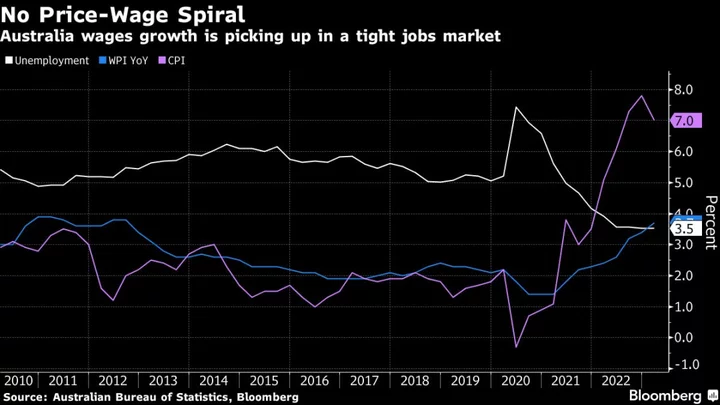
US Jobs Report Is Set to Provide Some Solace to the Fed
US employers are gradually dialing back the pace of hiring and hourly earnings are moderating, offering some solace
2023-05-28 04:27
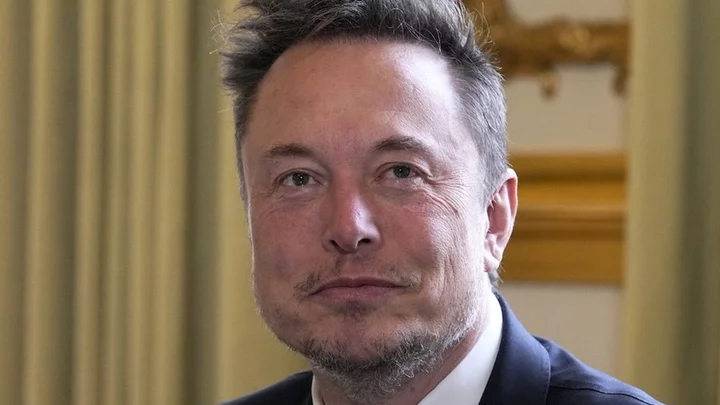
Twitter pulls out of voluntary EU disinformation code
"You can run but you can't hide," commissioner Thierry Breton warns Twitter over upcoming rules.
2023-05-27 22:56
